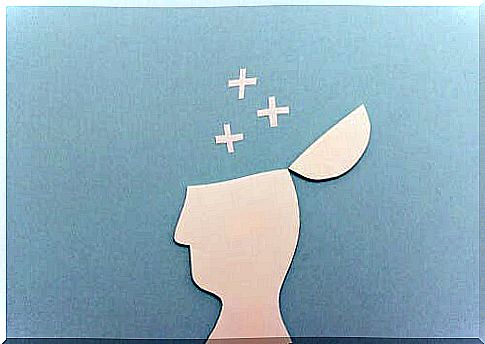Some Interesting Psychological Effects

Psychology is a science that is capable of offering an explanation to a multitude of events that occur in our day to day life. Without being aware of it, all of us, as humans, fall into the trap of certain biases or psychological effects.
Some harm us, others do not; some are typical in certain societies, others are common among teenagers, and so on. But, be that as it may, the truth is that they have in common the fact that the brain uses shortcuts to save on all the information that we have to handle on a daily basis. And this sometimes leads to some interesting effects.
Saving the information that we come across throughout the days is of the utmost importance. Although sometimes our brain can make mistakes, most of the time these biases or effects favor our adaptation.
Think of the cave times. It was better for us to be fast and efficient than analytical and slow. The latter, although it could lead to a more correct answer, could also lead to it being too late . You understand me.
What is also true is that, nowadays, advertising, companies and culture have echoed these psychological effects that we usually fall into and have opted for them as a means to improve their sales. And they succeed. Here are some brushstrokes of the most common and interesting psychological effects, although there are many more. Which ones do you identify with?

Psychological effects
Barnum effect
How many times has it happened to you that you have read your horoscope and have thought: this is just what happens to me !? Well no. Again it is your brain that skews. What you have read is not what is happening to you in particular. You have been a victim of the Barnum effect, also called the Forer effect .
This takes place when we are told or read certain descriptions that a priori seem to be perfectly adapted to what we know about ourselves; However, if we analyze them well, we will be able to realize that they are no more than general, vague and imprecise descriptions that could fit the profile of a large part of the population.
Do the test yourself, read the following:
“Be careful with the projects you undertake, Libra, you always put more burden on yourself than you can bear. Check your limits. This week there will be someone who wants to ask you for help, try to do what you can, but do not take responsibility for their emotional change. Health may give you a setback, but it will not last long, you will soon return to the load as you always do. On Monday and Tuesday you will feel very active, but then the rhythm will slow down little by little “
As you can see, almost anyone could fit in here. Who is not trying to undertake a personal project and sometimes works too hard? Who doesn’t have someone close to them going through a rough patch? Who does not have a cold from time to time or a back pain? On Monday and Tuesday we are more active, of course, we come from the weekend, to later accumulate fatigue.
Fit-anchor effect
This effect is widely used by advertising campaigns. For example, imagine that you go to the sale and see a coat that you love. It has two labels: one that shows a fairly high amount and another that is much lower, which would be the current price.
Without thinking about it, you buy your coat. What has happened? The first price has served as an anchor with which you have taken a reference to think that then you were acquiring a bargain and that you could not waste that opportunity.
Ultimate attribution error
It occurs when we overestimate someone’s personal motives to the detriment of situational ones. In other words, people usually point to “character”, “personality”, etc. as the cause of something. instead of thinking that perhaps the circumstances or the environment of the person influenced their performance much more. This, consequently, leads to erroneous explanations about the way of being of others.
False consensus effect
It occurs when we overestimate the number or degree of people who agree with what we think. It is a way of exaggerating confidence in our own beliefs, even if they are wrong. This effect can have negative consequences: it prevents us from opening ourselves to the world, to the ideas of others, to how others think and feel.
Therefore, we run the risk of losing valuable information that would be extremely useful to us, for example, if we are the owners of a company and work with more people who do not think alike and who could provide us with other ways of seeing things.

Illusory correlation
It causes us to overestimate the relationship between two variables that are actually independent. For example, think of pathological gamblers. They can tell themselves that “the slot machine is hot because it has not given out any prizes for a long time.”
In this sense, we are relating time to the probability that the game will win, which we rationally know has nothing to do with it, even more so if we know that slot machines follow a program with a variable or random ratio.
Self-fulfilling prophecy
It is also known -with nuances- as the Pygmalion effect in the educational field or the Rosenthal effect in the area of organizations and companies. It is an effect that arises when we have deeply ingrained beliefs about a specific issue and act accordingly.
What happens is that reality, finally, ends up confirming those beliefs as if it were a prophecy. For example, a person who suffers from pathological jealousy, may end up favoring precisely that infidelity with his jealousy at first unfounded. Their behaviors of questioning the partner, spying on them and harassing them, tire the other, who can finally leave the relationship.
Blind spot effect
Finally, the blind spot effect speaks precisely of the fact that most of the time we do not recognize our own biases and effects. We think that this is something that “happens to others”, when it is common that to a greater or lesser extent we all skew and fall into different effects.
As you can see, no one can get rid of the psychological effects. The interesting thing about this is to know them and recognize them when they appear, such as in sales, in promotions, in addictions, etc.
In this sense, when the psychological effects do us more harm than good, it is interesting to try to name them, to know that they exist and not fall into the trap. And you, in what effect have you recognized yourself?









